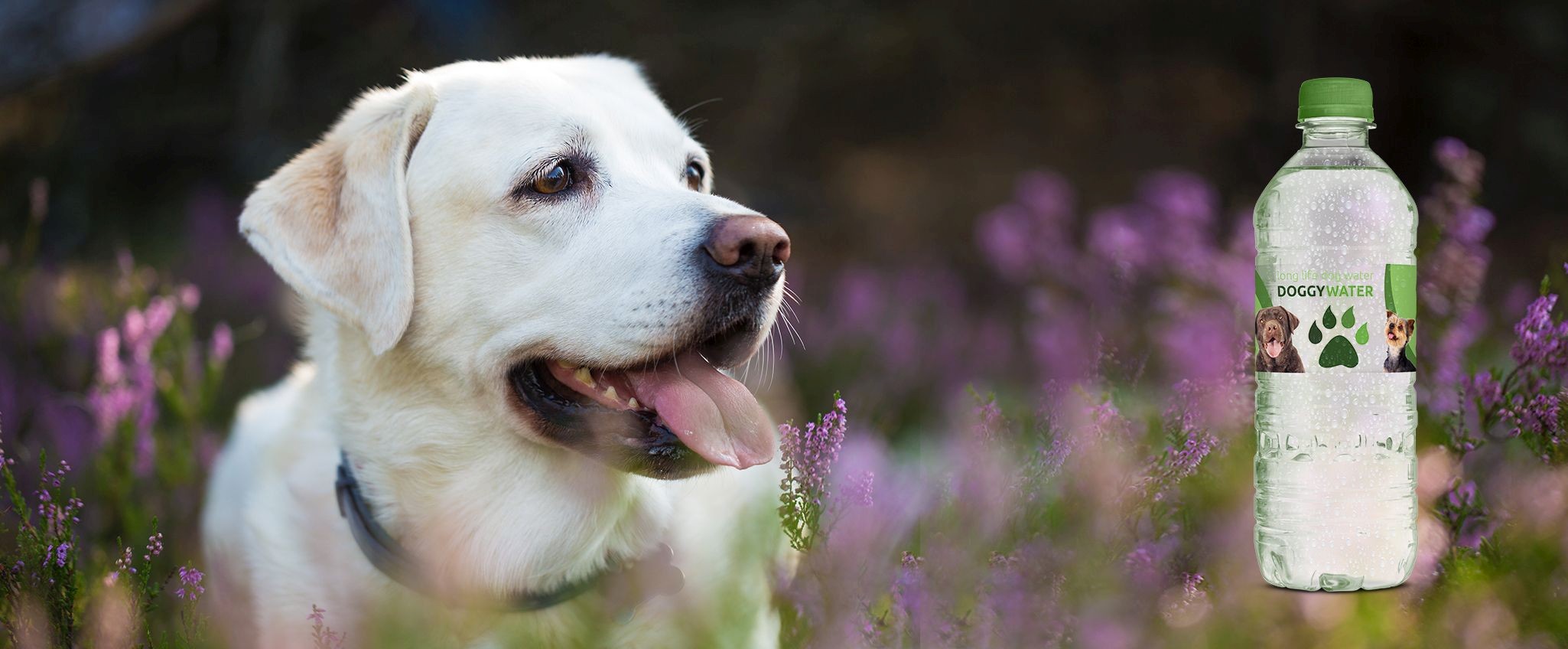
Dog Quote of the day : A dog is the only thing on earth that Loves you more than loves himself.
 DOGWATER / DOG FACTS
DOGWATER / DOG FACTS
 HOW MUCH WATER SHOULD A DOG DRINK
HOW MUCH WATER SHOULD A DOG DRINKHow Much Water Should a Dog Drink
How much water should a healthy dog drink on a daily basis?
In general, water intake varies a little according to their diet. If dogs are provided wet food, they may consume less water, but dogs fed dry food or salty treats must make up for lost water and appear to consume more than expected. This extra water consumption, however, is typical. A decent general rule of thumb is that a healthy dog should consume on average, 1 ounce of clean water per pound of body weight per day. For example, A 5-pound dog should consume around 5 ounces of water daily, whereas a 50-pound dog should consume approximately 50 ounces of water daily. It is critical to monitor your dog`s water consumption since drinking too little water might result in dehydration while drinking too much water can indicate organ problems. If your dog is drinking more, he is almost certainly peeing more (another sign of medical conditions). Indeed, increased intake is frequently a response to excessive urine fluid loss. If your dog is overly thirsty (polydipsia), it is possible that he is losing excessive quantities of water for a variety of reasons. While a variety of illnesses can cause an increase in water consumption and urine output, the most frequent are kidney disease, diabetes mellitus, and Cushing`s disease. Psychogenic polydipsia is an unusual cause of increased drinking in dogs. It is a behavioral disorder characterized by excessive thirst. Primary polydipsia is a term that refers to excessive water consumption that is not caused by disease or psychosis: bored pups or water-loving breeds may sometimes or routinely tank up on water.
Dog Dehydration
Any ailment that causes a fever, a loss of appetite, frequent urine, or excessive panting might lead to further water loss. Dehydration is also a symptom of other serious health issues, such as some urinary tract infections, malignancies, diabetes, and renal disease. Pregnant dogs may be more prone to dehydration due to their increased nutritional requirements. When dogs require water while pregnant or nursing, the danger of dehydration increases. Once an ill dog`s kidneys fail due to dehydration, he or she may die. If they don`t drink enough water make a point of praising and rewarding them anytime they take a drink from their water bowl. Make sure you also have fresh water in all the areas they frequent like near their dog food bowl and where they sleep. The majority of dogs will automatically regulate their own water consumption and drink plenty of it as long as their dish is cleaned and replenished regularly.
How can I determine whether my dog is dehydrated?
If you believe your dog is dehydrated, follow these measures. Gently press on the skin and release. Ascertain that the skin can be readily repositioned. When the skin is dehydrated, it may return slowly or even remain up for an extended period of time before disappearing completely. Other signs of dehydration in dogs include dry gums and greasy fur. Peeling skin, dry eyes, and a dry nose. The nose is dry, the eyes are dry, and the lips are dry.
Can a Dog drink too much water?
The most basic reason animals drink is to quench their thirst. Their bodies are dehydrating, and they must drink to compensate. Due to the fact that dogs do not sweat except on their nose and foot pads, they expel body heat by panting. They lose water through evaporation when they pant often. This water loss is normal and may easily be replaced via drinking. Excessive water consumption that exceeds the average quantity or happens without apparent explanation may be a symptom of illness. Even at normal temperatures, the body is unable to regulate water loss in a range of circumstances. This water loss must be replaced, which is why dogs drink copiously to maintain equilibrium. Consuming an excessive amount of water can result in toxicity and electrolyte imbalances; consuming an insufficient amount of water can result in dehydration, organ failure, and even death.
Is Tap Water Safe for our Dogs?
Dogs are just as likely to suffer from illnesses caused by drinking bad water. Experts agree that dog`s health can be severely compromised if they drink tap water that has not been properly filtered. Dog owners who believe their dog is healthy may not notice the signs of liver or kidney illness until it is too late if the dog is drinking bad dog water. Some dog diseases are made easier by poor dog water: Signs of kidney failure include weakness, reluctance to move, and a tendency to drink large amounts of water. Dogs can also suffer liver disease from dog-tainted tap water; symptoms of this are loss of appetite, vomiting, and yellowing eyes or dog skin.
Tap Water vs Bottled Water
As a conscientious dog owner, you are well aware of the risks that polluted drinking water poses to your dog. We believe chlorine-treated tap water has a long-term effect on your dog`s health, and evidence shows that it`s generally best to avoid it if possible. Thus, you are left with two alternatives. The first approach is to provide bottled water for your dog. How it compares to tap water is very dependent on the sort of bottled water purchased.
If you buy bottled water for your dog make sure that it’s not merely water from a public water source that was filtered and then put into a container. Because it is – and there is simply no other term for it – a total scam. Instead, seek out a specially designed spring and artesian DOGWATER, which is the most natural form of water and has zero hazardous pollutants.